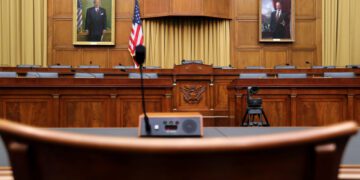RALEIGH NC – North Carolina Governor Pat McCrory signed into law a bill that restricts bathroom and showers to use by gender determined at birth. Republican lawmakers agreed, Democrats disagreed.
Illinois is facing a similar issue and because the state's anti-discrimination law includes protections against discrimination based on gender identity, high schools are beginning to adopt policies that allow birth males that identify as females into women's bathrooms and shower rooms.
North Carolina's law was brought before their legislature after localities throughout the state began setting up their own bathroom use policies. The New York Times reports:
The session, which was abruptly convened by Republican lawmakers on Tuesday, came in response to an antidiscrimination ordinance approved by the state’s largest city, Charlotte, last month. That ordinance provided protections based on sexual orientation, gender expression and gender identity, including letting transgender people use the public bathrooms that correspond with their gender identity, not gender at birth.
The state bill, put together so quickly that many lawmakers had not seen it before it was introduced Wednesday morning, specifically bars people in North Carolina from using bathrooms that do not match their birth gender, and goes further to prohibit municipalities from creating their own antidiscrimination policies. Instead, it creates a statewide antidiscrimination policy — one that does not mention gay and transgender people. The bill also prohibits local governments from raising minimum wage levels above the state level — something a number of cities in other states have done.
Whether to allow transgender people access to bathrooms based on gender identity has touched off a national debate, and actions in recent weeks had appeared to turn in favor of that access. Earlier this month, South Dakota’s Republican governor vetoed a bill banning access. A similar bill failed in Tennessee this week.
“North Carolina has gone against the trend,” said Sarah Preston, the executive director for the North Carolina office of the American Civil Liberties Union. “And they crafted a bill that was more extreme than others. They specifically left gays, lesbians and the transgender community out of the antidiscrimination policy. They want to make it plain that they think that kind of discrimination is O.K.”
Illinois could face a vote on similarly-directed legislation this spring.







